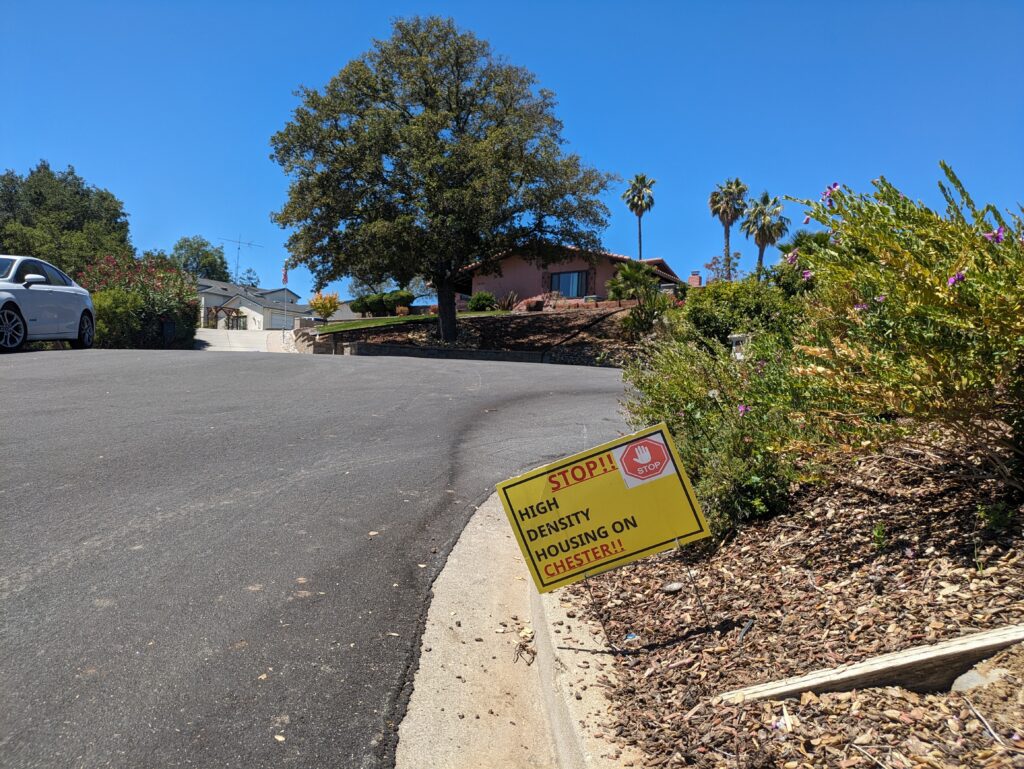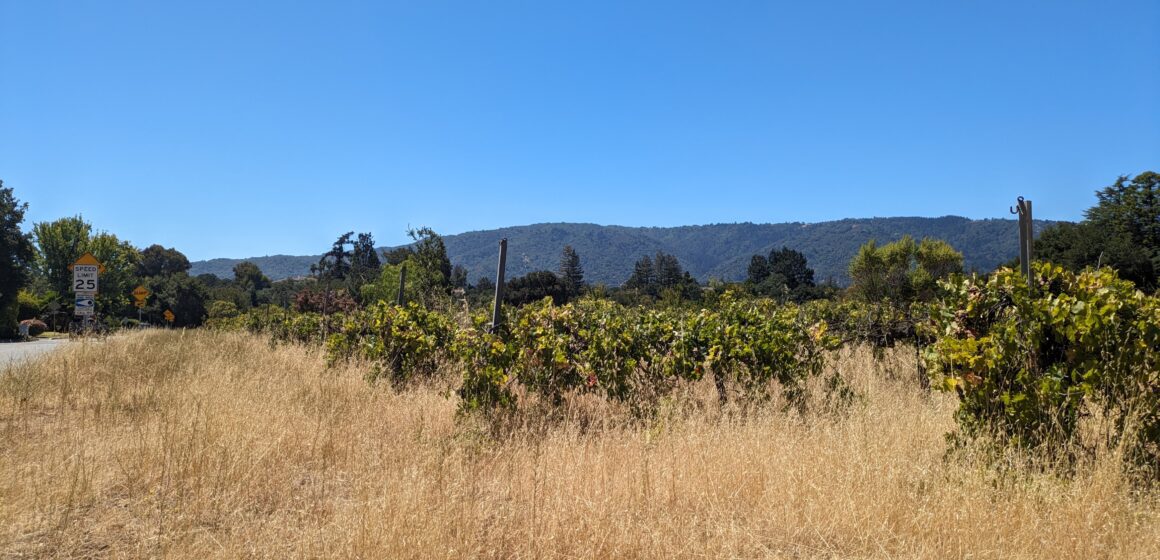A century-old Saratoga vineyard could transform into hundreds of homes, creating mixed feelings in the community.
San Jose-based City Connect Real Estate Development is proposing a 231-home development on 11.6 acres of vineyard land at 14001 Chester Ave. The project includes 24 single-family homes, 85 townhomes, 84 homes with tandem garages and 38 attached accessory dwelling units, a little more than a half-mile from West Valley College. Approximately 47 homes will be affordable and the project will have 461 parking spaces. All the homes are for sale, with 169 designed to reach up to three stories.
City officials are still reviewing the project’s environmental impact report before the development heads to City Council for approval. City Connect Real Estate Development filed the project using builder’s remedy — a state law that allows developers to bypass local zoning when a city is late getting a state-certified housing plan, giving cities less power to deny development.
Thomas J. Wilson, CEO of City Connect Real Estate Development, said the project is a key development in Saratoga because it will offer a housing variety that’s limited in the city. The small city, home to roughly 31,000 residents, is 83.4% expensive single-family homes, according to SV@Home data.
Wilson, a Saratoga native, said he wanted to create a development he could have moved into with his wife when they came back to the Bay Area.
“When we returned from college, it was quite clear (moving to Saratoga) wasn’t an option. (We were) totally priced out,” he told San José Spotlight. “What we’re really trying to do is bring a product type into the market that’s for the missing middle.”

The surrounding neighborhood is not happy with the proposal. Signs pepper the front lawns of nearby houses with phrases like “Stop high density housing on Chester!”
The most unhappy residents are John and Monica Bellicitti, who sold the vineyard land for development in 2023. It had been in the family for more than 100 years, yet they made the difficult decision after having trouble selling their grapes to local wineries. The Bellicittis said it wasn’t feasible to continue operating the vineyard.
The Bellicittis said the original sale contract included a proposal for 20 ranch-style single-family homes, which appealed to them. But then the development plans changed, which they said they had no control over in the contract.
Monica Bellicitti said she’s heartbroken they got “the short end of the stick.” She said neighbors harassed her family over the development, even though she was equally concerned.
“We were just as upset as (the neighbors) were, but we were the villain,” she told San José Spotlight. “And now this is gonna be our backyard and it’s just crazy because of the traffic problems.”
Wilson said City Connect Real Estate Development could have put a high-rise, 600-home apartment building on the site instead of the existing proposal, adding the company purposefully designed the project to suit Saratoga. Builder’s remedy allows developers to more easily get approval for larger-scale developments.
The city must build more than 1,700 homes by 2031 to comply with state housing mandates, 715 of which must be affordable for low-income residents. That’s not an easy number for residents and local officials to swallow who want to maintain the city’s small-town allure.
Mayor Belal Aftab said it’s a dilemma, especially as the city faces more than 20 builder’s remedy applications. Neighboring Los Gatos is facing similar difficulties, with potential multistory developments coming down the pike.
“Saratoga’s unique charm and character are facing a challenge as the city balances the need for housing with the impact of (the law),” he told San José Spotlight.
But housing advocates say high-density, affordable housing is needed, particularly in affluent communities like Saratoga where the average annual income per household in 2020 was about $241,000.
 Alison Cingolani, director of policy for SV@Home, said affordable housing is crucial for making Saratoga welcoming to all. She wants to see more affordability outside of accessory dwelling units because they don’t work for everyone.
Alison Cingolani, director of policy for SV@Home, said affordable housing is crucial for making Saratoga welcoming to all. She wants to see more affordability outside of accessory dwelling units because they don’t work for everyone.
“Having affordable housing there is really important,” she told San José Spotlight. “It’s also a community that has a lot of amenities that are great for everyone, including families with lower incomes that may kind of be cut off from access to those amenities.”
Contact Annalise Freimarck at [email protected] or follow @annalise_ellen on X.



Leave a Reply
You must be logged in to post a comment.